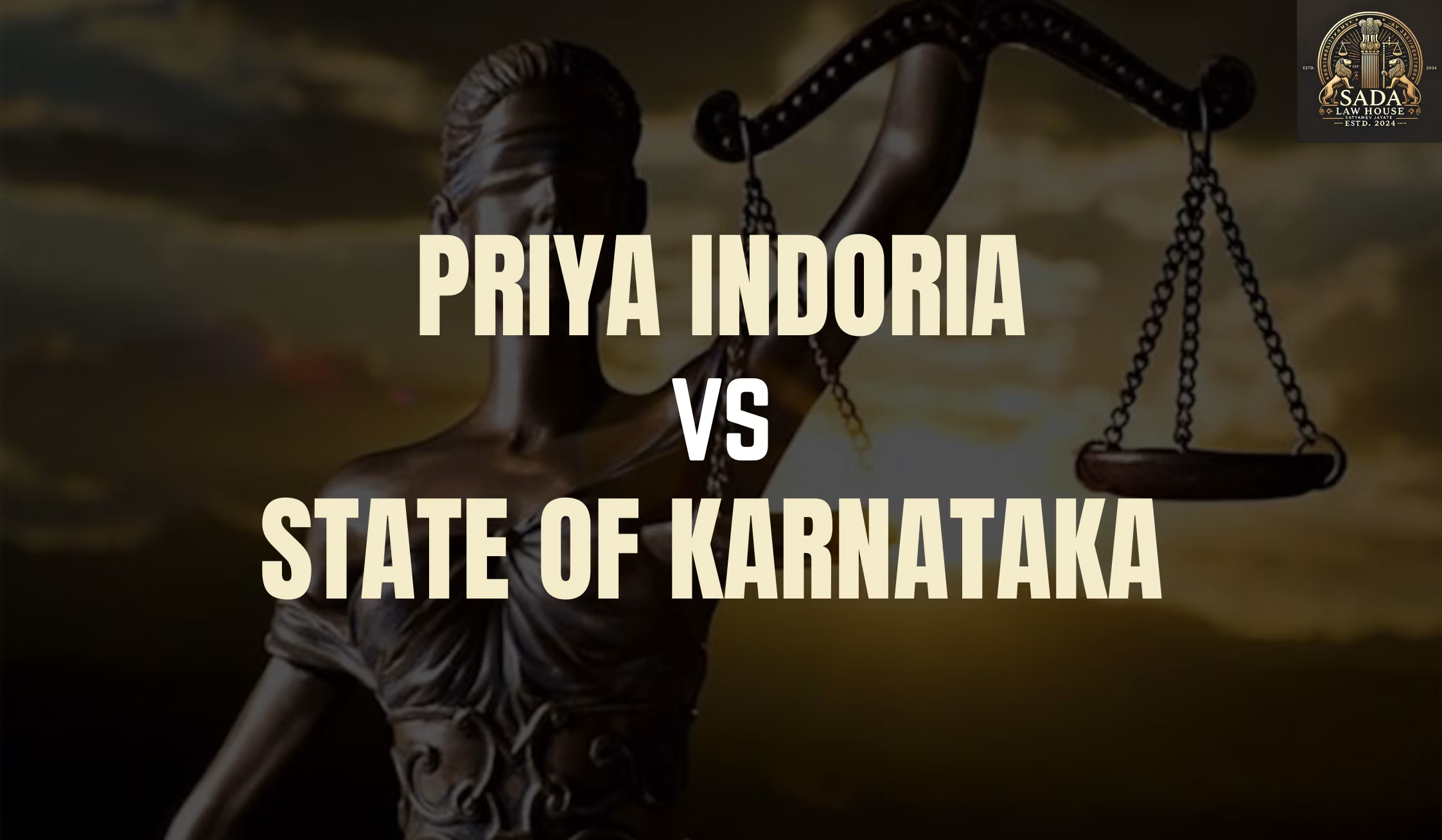Supreme Court Affirms Right to Anticipatory Bail Across States in Matrimonial Disputes: Priya Indoria v. State of Karnataka (2023)
- REHA BHARGAV
- 13 June 2025

In a significant 2023 ruling, the Supreme Court of India held that High Courts and Sessions Courts can grant anticipatory bail even if the FIR is filed in another state. Read how the Priya Indoria case redefined anticipatory bail, misuse of FIRs, and personal liberty under Article 21.
Introduction – A Landmark Case on Anticipatory Bail
The Supreme Court‘s judgment in Priya Indoria v. State of Karnataka, delivered on November 20, 2023, addressed key issues surrounding anticipatory bail, personal liberty, and misuse of criminal law in matrimonial disputes.
The petitioner, Priya Indoria, sought transit anticipatory bail in connection with multiple FIRs filed in Karnataka, which she claimed were false and vindictive, stemming from a personal dispute with her estranged husband and in-laws.
Background and Facts of the Case
Matrimonial Dispute Turns Criminal
The case originated from a marital conflict, with multiple FIRs filed under Sections 498A, 406, 504, and 506 of the Indian Penal Code. Priya Indoria argued these complaints were malicious and intended to harass her and her family after the breakdown of her marriage.
Despite the core issues being civil in nature—relating to dowry, stridhan, and property—criminal charges were framed to escalate the matter.
FIRs Across Jurisdictions
All FIRs were filed in Karnataka, though the petitioner was residing in a different state. This raised the issue of whether High Courts or Sessions Courts outside the FIR’s jurisdiction could grant transit anticipatory bail.
Legal Issues Raised
Key Questions Before the Supreme Court
Were the multiple FIRs filed against Priya Indoria an abuse of process?
Was she entitled to anticipatory bail under Section 438 CrPC, even when FIRs were registered in a different state?
Could the dispute be more accurately characterized as civil rather than criminal?
Was there a violation of Article 21 – Right to Life and Personal Liberty?
Arguments Presented
Petitioner’s Arguments
Misuse of Law: FIRs were filed out of malice, not justice.
Repetitive FIRs: Multiple complaints based on the same set of facts amounted to legal harassment.
Civil Dispute Mischaracterized: The core issue was matrimonial discord, not criminal conduct.
Violation of Fundamental Rights: Her right to liberty was at risk due to unwarranted arrest threats.
Entitlement to Anticipatory Bail: She met the conditions outlined in Section 438 CrPC.
Precedents Cited: Referred to prior Supreme Court judgments on misuse of Section 498A IPC.
Respondent’s Arguments
Genuine Complaints: FIRs reflected real instances of cruelty and dowry misappropriation.
Different Transactions: Each FIR related to separate incidents over time.
Need for Custodial Interrogation: Important to recover stridhan and gather evidence.
No Automatic Right to Bail: Particularly in serious offences like 498A and 406 IPC.
Protection of Victims’ Rights: Alleged victims also deserved judicial protection.
Supreme Court Judgment – Key Highlights
The Supreme Court of India ruled in favor of Priya Indoria, granting anticipatory bail and condemning the misuse of criminal law in matrimonial matters.
Notable Observations
Abuse of Legal Process: The Court identified the repetitive FIRs as a clear case of abuse.
Civil Dispute Given Criminal Shade: It reaffirmed the need to distinguish civil disputes from criminal charges.
Emphasis on Article 21: Reiterated the importance of protecting personal liberty against legal intimidation.
Transit Anticipatory Bail Permitted: High Courts and Sessions Courts have the jurisdiction to grant interim or transit anticipatory bail, even for FIRs registered in another state.
Conclusion – Protecting Liberty and Preventing Legal Harassment
The ruling in Priya Indoria v. State of Karnataka is a landmark decision in the context of family law, anticipatory bail, and abuse of criminal process. The Supreme Court highlighted the growing misuse of Section 498A IPC and multiple FIRs to settle personal scores.
By affirming the right to seek anticipatory bail across jurisdictions, the judgment strengthens individual rights under Article 21 and promotes a balanced approach to justice in matrimonial disputes.
Case Laws






